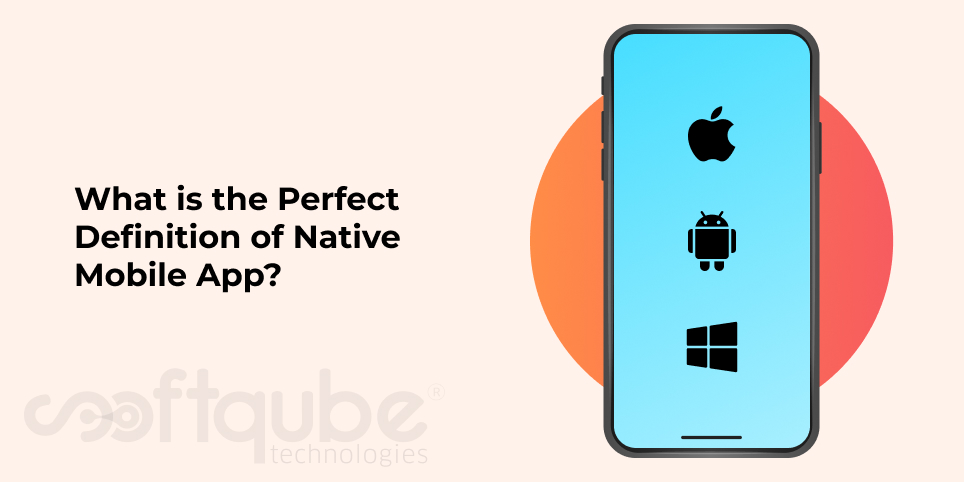What is the Perfect Definition of Native Mobile App?
December 9, 2015

Native mobile applications are mostly written on SDK of a platform and these are made for a particular device. Different people have different definitions for native mobile app development but among them the common things in all definition were as follows:
- Written to the SDK of any platform and OS of the manufacturer
- Designed specifically for a particular phone or any device
- It can run locally on any device
- It is developed to provide the ultimate mobile experience.
Few of the respondents felt that one can achieve a complete acceptable user experience with an application that is written properly in HTML 5. Later on, everyone came to the conclusion that native mobile apps are a must to integrate a huge range of complex sensors, displays and systems in order to create a perfect intuitive, streamlined experience.
Native apps are basically developed in several ways which are as follows:
- Making the use of tools offered by mobile platform: Here, the entire code is to be written in JavaScript and then it is to be deployed on all mobile platforms. This is not possible with a wrapper.
A developer has to get their app to work on various platforms and hence this is not the perfect design for any one platform. The scale and quality varies. It is necessary to properly grasp the vision of Google and Apple and then do the needful to optimize their user experience.
It is necessary to develop native apps if you wish to get featured in the App stores. Apple and Google pay very close attention to the entire app making process. Hence, for developers it is very important to keep in mind the app development guidelines given by Google and Apple and strictly follow them.
- Making most use of the value that these apps can give to a phone: Native apps are specifically designed for the phone. These offer a better UX in an app as compared to anything else with Bluetooth connectivity, GPS and connections to the stored data on the device.
- Web based HTML: Native mobile apps for iOS, Android and Windows can be developed with the help of traditional web. Every app needs to be device specific.
- An app which runs locally on the device: So, native application is the one which can run on the device without the need of any internet connection. This means there’s no need to access web to run native apps.
- Dedicated Advertising Formats: Native applications need specific advertising formats and native apps play an important role here. It is necessary to follow the guidelines of committee members on native advertising formats.
- What is considered to be native and what is not? There are many apple apps which use web views for user interface that lay things out in such a way that platform independent things can be laid out easily.
We are in a coding centric environment and when getting a hybrid line, it can be very flossy. The type and layout is superior to native as it is much more difficult then native. It entirely depends on the developer.
If you use HTML 5 then there is no performance issue but the condition is it should be written properly. Basically, people need performance and if you are producing client side code for performance and automation then keeping in mind the performance anything you use doesn’t matter at all.
The most important thing is how fast can you develop an app? If you are creating several numbers of apps then there’s no need to make native apps as both need equal time.
- Native apps are developed for creating mobile experience: Native mobile apps are developed for perfect mobile experience. A mobile app’s differentiating feature is its small UI footprint that is relative to its desktop counterpart.
The fact is native mobile app is much more sophisticated as compared to any other piece of software. Native mobile apps must combine a wide range of sensors, displays and systems in order to create an intuitive, streamlined and immersive experience.
From touch screens to complete voice recognition, proximity sensor to facial recognition; native mobile apps can be considered as the perfect way to interact with the world around us.
It is one that enables us to have a complete control on the user experience and access all the mobile resources such as GPS, accelerometer and camera. It is written in the technology form for the device and runs on the particular device.
Native apps make sure that the platform is used to its full potential. There are various ways to do cross platform development and get a native app developed for the perfect user experience.
Native Script is completely a new framework that includes cross platform development with JavaScript to make most use of native apps. Apps are developed in a language and toolkit offered by the platform.
Several native apps have a hybrid platform such as high fidelity with usability and access to local sensors. Most of the HTML 5 components use A/B testing.
So, these are the different ways to define native apps. Let us know how you define it and what according to you a native app is?
Wind Up
Hope this blog post made it clear for you to know native apps properly. For more such in depth knowledge about IT firms stay tuned with Softqube Technologies; a well known Custom Mobile application development company in India.
Share on






